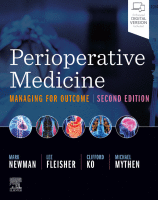Physical Address
304 North Cardinal St.
Dorchester Center, MA 02124

Perioperative complications involving the central nervous system (CNS) are common. However, these issues have generally received little attention in the presurgical assessment process. New data allow us to better guide physicians and patients regarding perioperative CNS risk and ways to…

Despite significant advancements in surgical and perioperative technology, cardiac surgery remains associated with significant risk of morbidity and mortality. Over the last 30 years, at least 20 risk models have been developed to account for variations in patient comorbidities, operations…

Introduction Anesthesia has become increasingly safer. According to the Anesthesia Quality Institute’s National Anesthesia Clinical Outcomes Registry, comprising over 30 million cases, perioperative mortality has significantly decreased in high-income countries despite a population increasingly burdened by severe comorbidities. Nevertheless, cardiac…

Describing the value of preoperative assessment resembles the fable of six blind men trying to describe an elephant: Each comes across different parts and creates his own version of reality from that limited experience and perspective. Therefore, a clear definition…

Significance of Perioperative Organ Injury Although anesthesia-related complications have decreased in the last two decades, perioperative mortality has not. The leading precursor to death after surgery is acute organ injury progressing to single-organ or multiorgan failure. The failure of two…

Introduction Tissue damage after surgery triggers a complex inflammatory response termed sterile inflammation characterized by the release of intracellular molecules into the extracellular environment leading to receptor-mediated immune signaling cascades. A key feature of this inflammatory response involves removing necrotic…

The practices of anesthesiology, surgery, and critical care are continuously improving. Through advances in each field, a number of patients with increasingly severe comorbidities are undergoing riskier and more complex operations and experiencing better outcomes. In recent years, intraoperative mortality…